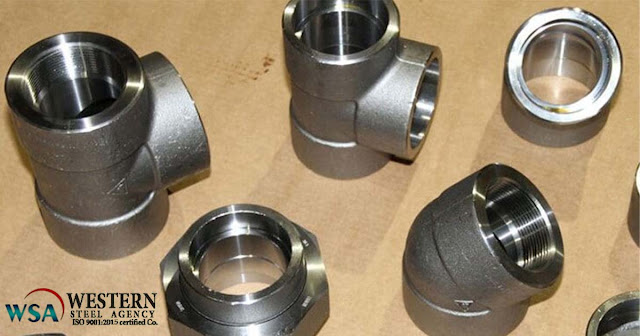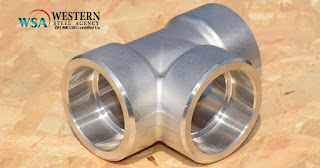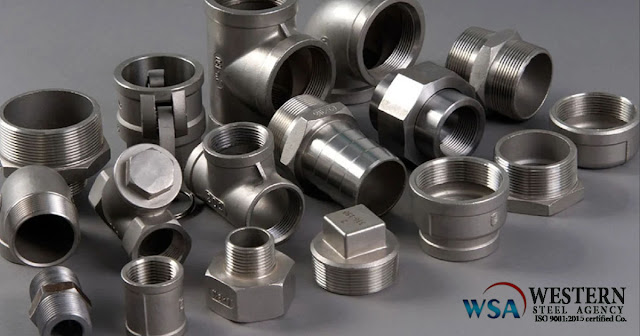Understanding the Manufacturing Process of Forged Fittings
When you look around, you might notice various objects made of metal - from doorknobs to pipelines. Have you ever wondered how these metal fittings are made? Let's delve into the fascinating world of forged fittings manufacturing processes. Western Steel Agency is the best Forged Fittings Manufacturers in India.
What are Forged Fittings?
Forged fittings are metal components used to connect pipes or other equipment. They are sturdy and reliable, making them crucial in industries like oil and gas, construction, and manufacturing.
The Manufacturing Process
Step 1: Material Selection
The process starts with choosing the right material. Common choices include stainless steel, carbon steel, and alloy steel. The selected metal should have properties suitable for the intended application.
Step 2: Heating
The chosen metal is heated in a furnace until it reaches a temperature where it becomes malleable but not molten. This temperature varies depending on the type of metal used.
Step 3: Shaping
Once heated, the metal is placed onto a die - a tool that shapes it into the desired form. The die exerts pressure on the metal, causing it to take the shape of the die cavity. This process is called forging.
Step 4: Finishing
After shaping, the forged fitting undergoes various finishing processes to achieve the desired dimensions and surface smoothness. This may involve machining, grinding, or polishing.
Types of Forged Fittings
Socket Weld Fittings
In this type, pipes are inserted into sockets, and then welded for a secure connection. Socket weld fittings are commonly used in small pipe diameters.
Threaded Fittings
Threaded fittings have threaded ends that allow them to be screwed onto pipes or other fittings. This type offers easy installation and disassembly.
Advantages of Forged Fittings
Strength and Durability
Forged fittings are stronger and more durable compared to fittings made by other methods like casting. This makes them suitable for high-pressure and high-temperature applications.
Resistance to Corrosion
Many forged fittings are made from corrosion-resistant materials, ensuring longevity and reliability even in harsh environments.
Precision and Consistency
The forging process allows for precise shaping and dimensional accuracy, resulting in fittings that meet strict quality standards.
Best Forged Fittings Manufacturers in India - WSAIndia
Western Steel Agency is a leading Forged Fittings Suppliers in India.We produce these ASME SA 790 Stainless Steel Forged Fittings with extra benefits and functionality to satisfy industrial demands.
Beside Forged Fittings Suppliers, We provide forged fittings worldwide, we are
Forged Coupling Fittings Manufacturers
Forged Reducer Fittings Manufacturers
Forged Cross Fittings Manufacturers
Our dynamic products are made with precision and premium raw materials. The purpose of ANSI B16.11 Forged Pipe Fittings is to enable on-site welding of pipe connections and path adjustments. Being a top manufacturer of forged fittings, we produce goods that meet high international standards and are known for their durability and functionality. We are the best Forged Fittings Manufacturers in Mumbai.
Conclusion
Forged fittings play a crucial role in various industries, providing strong, durable, and reliable connections for pipes and equipment. The manufacturing process involves careful selection of materials, heating, shaping, and finishing. With their superior strength, durability, and resistance to corrosion, forged fittings are an essential component in modern infrastructure and construction projects.
By understanding the manufacturing process of forged fittings, we gain a deeper appreciation for the engineering precision and craftsmanship involved in creating these essential components.




Comments
Post a Comment